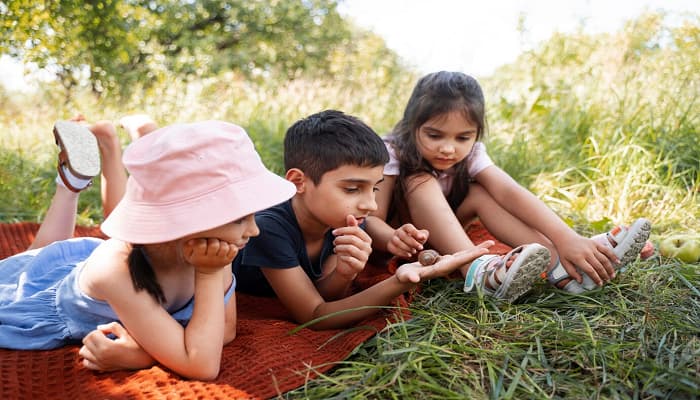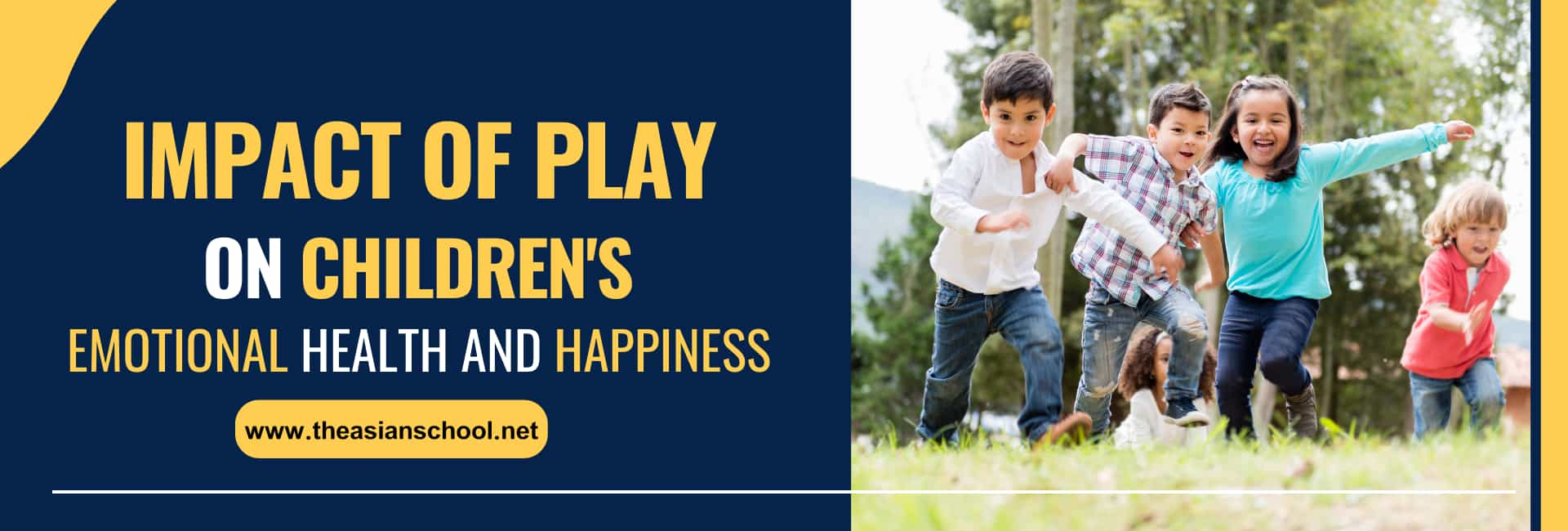Play is an essential part of growing up for children. Playing is like exercise for your child’s brain, helping them feel better and think clearer. The United Nations has acknowledged that every child has a basic right to play. This means that children everywhere, come from any background or have any circumstances, should have the chance to play freely and enjoy their childhood. Sadly, many challenges stop many children from fully experiencing the impact of play on children’s.
On a brighter note, many children want to play freely and enjoy their childhood, some of them want to explore the world around them without any worries or restrictions. Moreover, some kids have lots of cool stuff to play with, like video games, PlayStations, and their own mobile phones. However, other children miss out on the joy of free play due to their busy routines. Instead of enjoying and relaxing, they’re often pushed to concentrate only on best schoolwork or organized activities. Having fun and playing freely is crucial for their happiness and emotional health.
Now, it’s crucial to understand that play isn’t just a fun pastime. However, it doesn’t mean we should ignore other valuable activities. It’s very important for helping kids grow up healthy in every way – mentally, physically, socially, and emotionally. Going to sports school in india, learning new things, and joining organized activities improves the overall development of children and makes their minds strong for various challenges in life. We should always remember that while school and other activities are important, play is equally crucial. It’s not just about having fun, it has significant value too.
In simple words, just like you need different types of food to stay healthy, kids need a mix of activities, including playtime, for the overall development of the children and to make a bright future. When you laugh and have a good time together, your bodies release feel-good chemicals that make you feel even better. So, It’s crucial to find the right balance, making sure kids have opportunities to play sports , learn, and discover things that set them up for a successful and happy future.
Benefits of Play for Emotional Growth

Let’s understand the relationship between play and emotional well-being, and explore some various aspects that contribute to children’s overall happiness and emotional development:
Stress Relief and Relaxation:
Stress relief and relaxation are ways to calm down our bodies and minds when we feel tense or worried. When we’re too stressed, it’s not good for us. Play is not limited to games alone. Engaging in various activities like exercising, meditating, pursuing hobbies, or simply doing things that bring joy can be forms of play or even just doing things we love can help us relax. These activities make our brain release natural chemicals that make us feel happier and less stressed.
Creativity and Problem Solving:
In simple terms, when kids play, they use their imagination power to come up with new ideas and solve problems. This makes them feel more confident and happy. Playing helps them learn to adapt, express themselves, and handle challenges positively. Playing games engages children and contributes to their overall well-being. It helps to build a strong mind and encourages them to strategize, master their skills that benefit them in various activities which are good for their overall happiness and well-being.
Building Confidence Through Play:
Playing helps children to feel good about themselves. When they play, they try new things and learn from their mistakes, this makes them more confident. And when kids play with friends or adults, they learn teamwork and problem-solving, making them feel more confident and boosts their self-belief. When parents join and pay attention, it shows kids they are loved and equally important. In conclusion, Playing helps kids to feel good about themselves and discover their strengths.
Understanding Play: More Than Just Fun:
Play is not just about having a good time, it’s more beyond that. It gives them a sense of control, building confidence to handle real-life obstacles. Playing is all about facing challenges, learning to follow rules, picking up new skills, and getting new ideas, and social interaction. Playing helps kids grow in many ways, not just by having fun but also by learning important life lessons.
Social Skills and Emotional Intelligence:
When kids play together, they learn important social skills like talking, sharing, and solving problems. Playing allows children to step into different roles and situations, which helps to know more about other children and even get a chance to make new friends. This understanding grows empathy, makes it easier for them to relate to and connect with new people as they grow older. When kids play with friends, they learn how to work together, solve problems, build strategies, and empathize with others feelings more effectively.
In conclusion, Play is essential for kids’ happiness and emotional growth. It helps them express themselves, make friends, and become stronger emotionally. As adults, teachers, and communities, we should encourage play because it helps children learn, be happier, and grow up well-rounded.
Read Blog : Top 5 Life Skills for Students Successful Future















